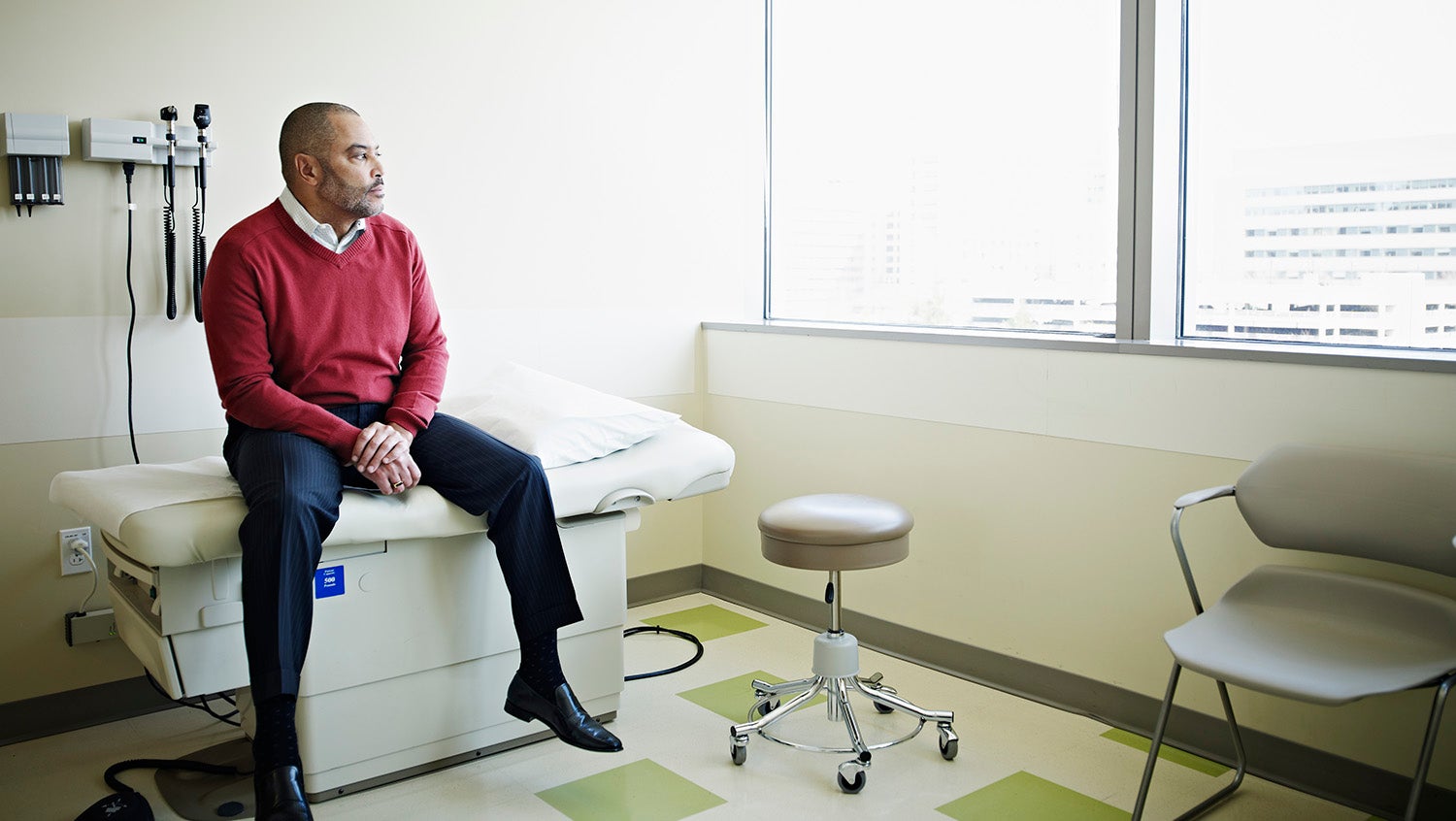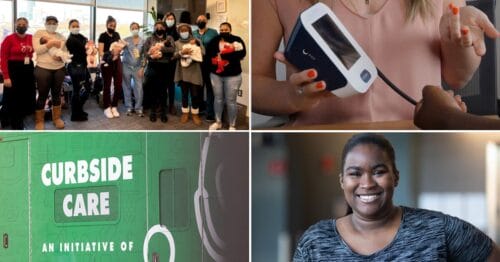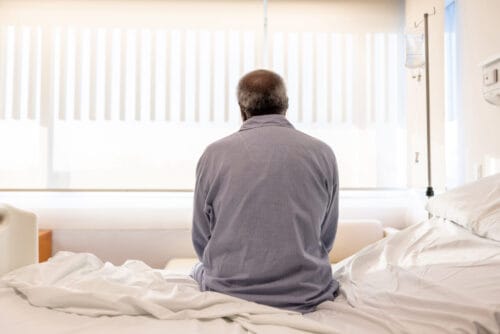Healthcare Needs to Make Reparations to People of Color
August 23, 2021

Getty Images
Medical researchers helped create a racial taxonomy that justified oppression and inequitable healthcare. To restore trust and achieve justice, healthcare reparations are needed.
The disproportionate impact of COVID-19 on communities of color has been impossible to ignore, from higher hospitalization and mortality rates to lower vaccination rates. Many accounts blame disparities in underlying health conditions among people of color and a longstanding distrust of healthcare systems in the face of such egregious wrongs as the Tuskegee experiment, the experience of Henrietta Lacks, and myths of biological inferiority of races.
A recent perspective piece in Frontiers in Public Health goes deeper, asserting that scientists and doctors created and honed the racism that helped justify racial inequities in healthcare. Achieving true racial justice, the authors argue, will require acknowledging the role of science and medicine in the racism and inequities still rampant today, and then arranging reparations to underserved patient populations.
Avik Chatterjee, MD, MPH, assistant professor of medicine at Boston University School of Medicine and Boston Medical Center (BMC) and physician with Boston Health Care for the Homeless, is an author on the paper, alongside Harvard Medical School’s Derek Ross Soled, MSc; Beth Israel Deaconess’ Daniele Olveczky, MD; and University of Washington Medical School’s Edwin Lindo, JD. HealthCity spoke with Chatterjee about why reparations are needed and what a reparations system might look like.
HealthCity: What led you to write this piece, and what’s the general idea underlying the case for healthcare reparations?
Avik Chatterjee, MD, MPH: Prior to joining BMC, I was on the Harvard Medical School faculty. I’ve taught Introduction to Social Medicine for first-year medical students, which covers the way that race and racism affect health in the U.S. I became the faculty advisor for the Racial Justice Coalition, a student organization working to improve the curriculum’s treatment of the history of racism and how that shapes healthcare now. One of my former students, Derek Ross Soled, MSc, wanted to write a piece on reparations in the healthcare system, and he reached out to me.
When we learn about U.S. racial history, we often focus on the integration of schools or the criminal justice system and its race-based disparities—but we rarely if ever talk about the history of racism in medicine. Even in medical school, we barely talk about it.
What we wanted to highlight in this paper is that healthcare isn’t just one of many applications of racism in America. We argue that healthcare and science were central to the propagation of racist ideas in all those other fields. People who wanted to instill racism in the legal system and the housing system relied on scientists and doctors who would say that races were inferior.
HC: Historical medical wrongs like withholding treatment from Black syphilis patients in Tuskegee are shocking to us today. In what ways do racism and biological race notions still continue to cause harm?
AC: A study in 2016 showed that medical students had persistent beliefs about race-based differences in pain tolerance. When presented with a case scenario, they made differential decisions about treatment based on those beliefs. So, this is not something that has gone away.
The problem is, it’s been ingrained into the way we do medicine. Even without someone having false beliefs about different biology based on race, it’s built into the algorithms. For example, one of the lab tests for kidney function has a race correction. If the patient is Black, you click a button and it gives you a different number. One problem with that is, who is Black? Is a multiracial person Black? Doctors may say the patient’s Black, but who’s to define that? Another is the correction is based on a sort of racist idea that Black people have more muscle. There’s no science to back that up.
See more on HealthCity: Existing Race-Based Predictions Can Perpetuate Racism in Nephrology
And the real-life implication is that many, many Black people are not being put on transplant lists, are not getting needed treatment, because the test artificially makes it seem their kidneys are doing better than they are.
HC: What would the goals be for reparations? What would they do?
AC: It’s much like the idea of restorative justice—which is not one-punishment-fits-all or punishment for punishment’s sake, but the idea of acknowledging the harm. With reparations, it’s saying “This is the thing we did wrong; these are the specific people we harmed; and this is the way to make it better.” Is it financial harm? Emotional harm? Physical harm? And then what are the specific reparations or reparative policies we can put into place that address those harms?
Also, it’s crucial to work with the communities that were harmed. You have to listen to communities and make the reparative policies specific to the harms you did, and you have to be able to talk explicitly about both of those. That is the guiding process.
HC: What form would healthcare reparations take?
AC: I think the wrong thing to do is say, “Reparations equals cash payments, or reparations equals this or that,” because you have to name the harms and who was harmed and then figure out the policy that matches that harm.
For example, the story of Henrietta Lacks [a Black woman whose cells were used for research without her permission] reveals the ongoing lack of patient and community voice in research. So we’ve talked about requiring integration of patient voice into research. There’s a really intensive review process by the Institutional Review Board. The IRB addresses a lot of things, but not the community and patient voice. And so while cash reparations may be among the ideas on the table, part of a reparative policy also may be having community members on review boards.
“Everyone gets dragged down by a bad, racist system,” says Avik Chattergee, MD, MPH. Click To Tweet
Another idea would be to have National Institutes of Health funding be tied to equity and equity outcomes, where the NIH might say, “For any study we fund, you have to show us that you haven’t participated in worsening health inequities in the U.S.”
HC: Are there any existing models for medical or healthcare reparations?
AC: A pilot program at Brigham and Women’s Hospital called Healing ARC [acknowledgement, redress, and closure] is the best-articulated framework for reparative policies in healthcare that I’m aware of.
There is also historical precedent in the way that community health centers started in apartheid South Africa. It was a movement of a Black, segregated community building a health center that looked like community members wanted it to look, based on principles like having a majority of the leadership board be health system users and offering wraparound services—not just medicine but pharmacy, food, and social services all in the same building. The first two U.S. community health centers—in the Mississippi Delta, an overwhelmingly Black region, and in urban Boston—were informed by those principles. I would argue that was an early form of health reparations.
HC: Who would be responsible for deciding how and where a reparations program would happen?
AC: The higher up you put the power for this to happen, the better. Right now, it’s each health system deciding to take this on in some way or another. But you need involvement of government at every level raising this as a priority.
HC: Is the idea of healthcare reparations controversial? What sort of response has your piece generated so far?
AC: It is controversial. There are a lot of people to whom this is very threatening. Michelle Morse and Bram Wispelwey, two physicians who authored a piece in March describing the Brigham’s reparative framework got racially and gender-charged hate mail and death threats. Our piece [published July 8] hasn’t gotten the same response. Obviously, none of us wants death threats, but we do want people to think, and to potentially think about things that are uncomfortable. So we’ll see.
HC: What would success look like? Can we expect to reach a point sometime where medical reparations are no longer needed?
AC: That’s the hope. First, we want to reach those equitable outcomes that everyone wants. But it’s not just about equity. Once you start to think about this stuff, you see that a system where quality and treatment vary so much from place to place, hospital to hospital, person to person, actually hurts everybody. Everyone gets dragged down by a bad, racist system.
We want the gaps to disappear. We want everyone to be at optimal health. That is going to mean the whole system getting better. Some of the process measures will be meaningful community engagement and community input in the way medical care and scientific research are done. Once we have that meaningful engagement and involvement, I think even if health indicators lag, we’re going to be moving in the right direction.
This interview has been edited and condensed.


